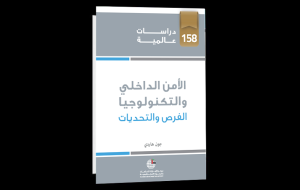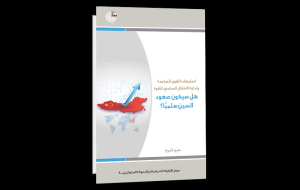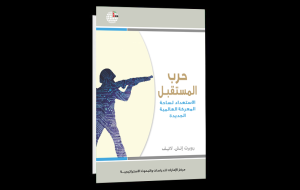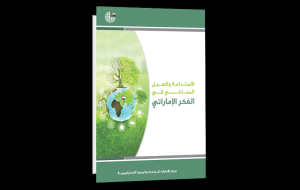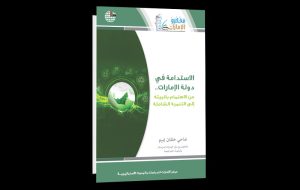Two pivotal priorities have been central to Putin’s policy direction during his time in power, and have shaped policy development in other areas. The first is military security, which took on greater significance in the aftermath of the Second Chechen War. The second is energy security, underscored by the dominance of the oil-and-gas sector within the Russian economy. Both of these issues involve complex internal structures and systems, driven by specific factors. There is, however, a common element that brings them together – they represent vital elements of Russian power, traditionally encapsulated in the concept of its ‘greatness’. The determination to renew the foundations of Russian ‘greatness’ is a third crucial aspect of Putin’s policy approach. Within this, the desire to exploit Russia’s strategic nuclear capabilities to assert its great power status seems as genuine as the long-held aim of politicizing its energy exports in order to become an energy superpower. These three themes are therefore closely interconnected and constitute essential contours of ‘Putin’s era’.
The book aims to identify the main issues in the interplay between these three themes; restoring military power, capitalizing on energy potential and rebuilding foundations of ‘greatness’, before evaluating the ways in which they interact with one another. The three-dimensional analysis that structures the book begins by evaluating the status of the Russian armed forces, its energy sector development and the practical aspects of Putin’s plan to restore Russian ‘greatness’. The linkages between each area are considered, examining how the significant increase in state revenues, driven by the energy sector, enabled Russian military investment, while limiting energy investment. The analysis considers the ways in which actual and perceived military strength impact Russia’s status and territorial integrity, and the ways in which the dominance of the oil-and-gas industry impacts Russia’s position, both nationally and internationally.
The second part of the book addresses energy security in Russia over three chapters. The idea that the energy trade, and more specifically, the export of hydrocarbons, is directly linked to the security agenda is in fact new to Russian political thinking, despite the direct link between the drop in oil prices in the late 1980s and the collapse of the Soviet Union. The escalation of financial and political crises in August 1998 demonstrated how shrinking export revenues was a substantial security challenge. However, it was not until the spectacular spike in oil prices in 2004 and 2005 that Russia moved to a more proactive application of energy instruments. Although the net quantities of energy exported by Russia did not significantly increase, the value of the exports made it clear that it was indeed possible to conceptualize the use of an ‘energy weapon’.
Over three chapters, the third section of the book concentrates on military force as the ultimate demonstration of ‘greatness’. In Russian security doctrine, the theory that military strength is a crucial component of state power, as well as a precondition for gaining influence within the global order and an essential tool in confronting hostile external pressure, is a well-established maxim, reinforced throughout the country’s history. Alexander III’s adage that, “Russia has only two allies; the army and the navy,” has become the accepted wisdom of managing state affairs. Another insight, that has become widely agreed upon political logic, is that “a country that cannot feed its own army will be forced to feed a foreign one”. In a speech to parliament in May 2006, President Putin noted the value of the United States spending 25 times more on defense than Russia. Elsewhere, in a much-debated speech delivered in Munich in 2007, Putin stressed that “Russia is a country with a history that spans more than 1,000 years and in practice has always had the privilege of implementing an independent foreign policy”. The only problem with such veneration of military power is that Russia does not have enough of it to support its claim to ‘greatness’.
The fourth section of the book, consisting of three chapters, deepens the analysis of the dominance of energy in Russia, and the quest for ‘greatness’. At first look, the management of energy flows and the passionate pursuit of Russia’s ‘greatness’ appear to be on entirely different political trajectories. During the Cold War, the Soviet leadership made sure that complex decision-making processes related to energy resources were kept completely separate from plans related to the ‘fatal struggle with imperialism’. Specific decisions on the export and pricing of oil and gas were in fact tied to goals of keeping countries within the Soviet orbit firmly under control, while weakening the cohesion of the ‘enemy camp’. However, this Soviet energy strategy can be primarily seen as driven by a commercial mentality, more than a covert approach to turn oil and gas into political ‘weapons’. Since then, Vladimir Putin’s bold policies have ended this separation, transforming energy into a means of achieving ‘greatness’, as an essential pillar of his grand plan. Putin’s conception of Russia as an ‘energy super-power’ epitomizes this blend of energy as a tool of both commerce and power politics, where the aims of profit maximization and building political power are almost indistinguishable. Gazprom’s market value, for instance, has become a key indicator of Russia’s international status. As discussed in the book’s third section, employing three different aspects of ‘greatness’ – ‘Great Power’, ‘Empire’, and ‘Civilization’– makes it possible to fully exploit various types of energy resources, in order to advance specific political projects.
About the Author
Pavel K. Baev is a Russian political theorist, writer and research professor at the Peace Research Institute Oslo (PRIO).
Publisher: Emirates Center for Strategic Studies and Research
Publication Date (Arabic Version): 2010



